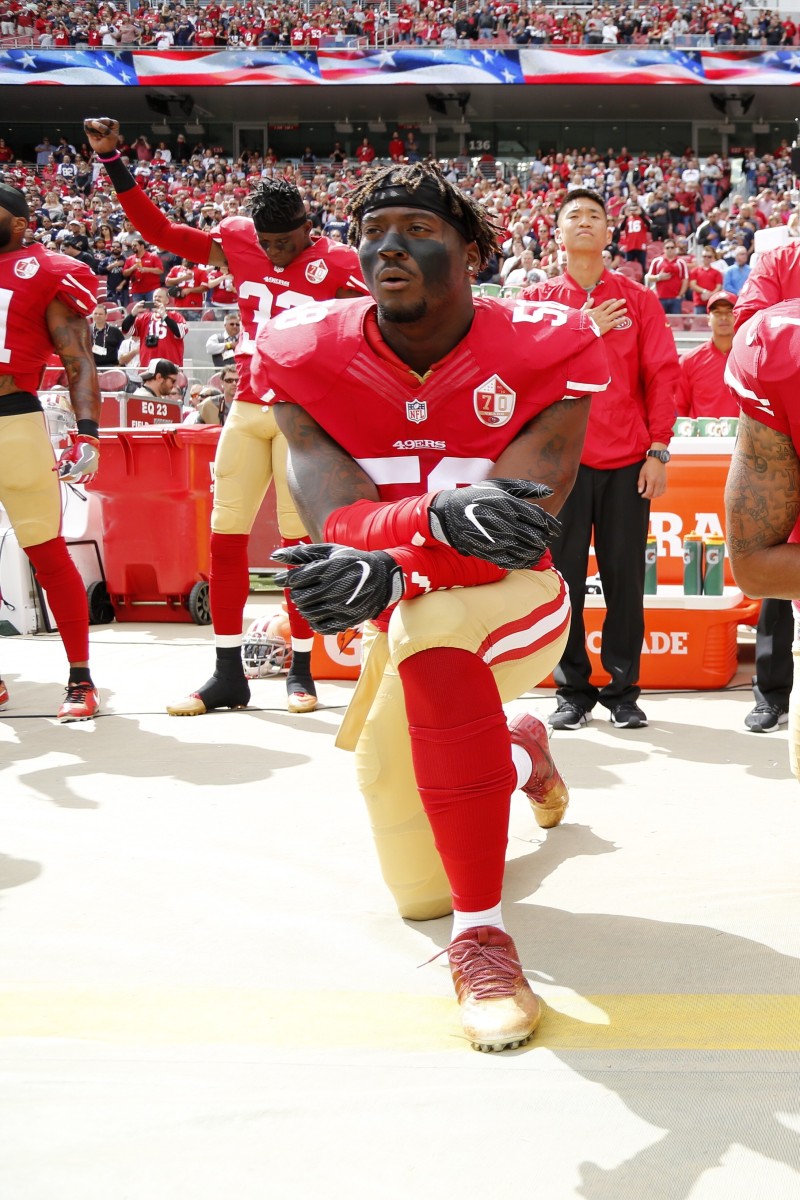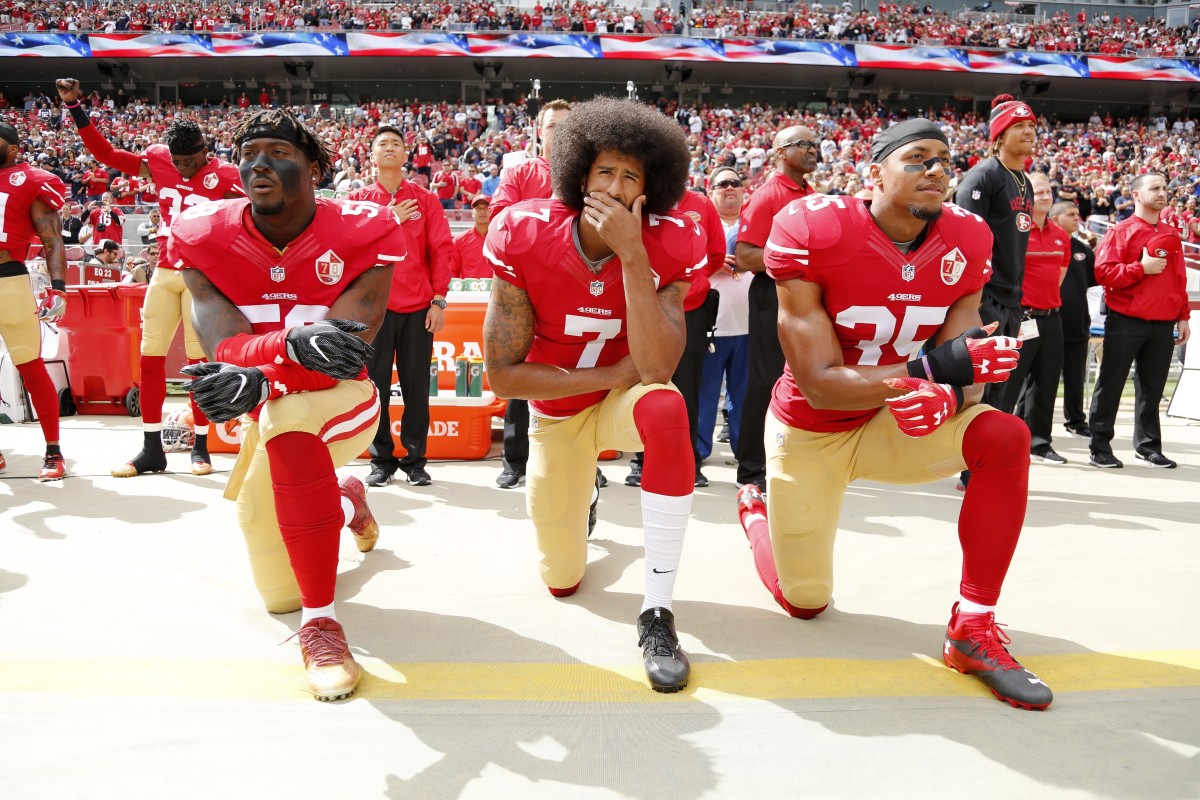
NFL supports Black Lives Matter and encourages players to peacefully protest - years after Colin Kaepernick paid the price
- To stand up against racial inequality and police brutality is a form of patriotism
- It’s good that NFL Comissioner Roger Goodell condemned racism - but it was only after a group of football players asked him to
 In 2016, Colin Kaepernick began kneeling during the national anthem to protest police brutality; other players soon followed. The action received a lot of backlack from the NFL and general public.
In 2016, Colin Kaepernick began kneeling during the national anthem to protest police brutality; other players soon followed. The action received a lot of backlack from the NFL and general public.At protests across the US against the police brutality that killed George Floyd, demonstrators have taken a knee to show how they feel. America knows where that gesture comes from.
Former San Francisco 49ers quarterback Colin Kaepernick’s first expression of protest came in a 2016 preseason game when, while other players stood for the national anthem, he sat. Then for remaining preseason and regular season games, he knelt during the anthem. Inspired, other players that year began kneeling.
The protests rankled Commissioner Roger Goodell and President Donald Trump, who once said any player who kneels during the anthem is “a son of a bitch.” Kaepernick paid a stiff price. He hasn’t played an NFL game since.
A guide to #BlackLivesMatter and the protests in the US
On Friday, Goodell announced that he and the league had been wrong all along. “We, the National Football League, condemn racism and the systematic oppression of black people,” Goodell said in a video. “We, the National Football League, admit we were wrong for not listening to NFL players earlier and encourage all to speak out and peacefully protest. We, the National Football League, believe black lives matter.”
It’s heartening to see Goodell and the NFL finally have awakened — though it’s important to note that the commissioner’s reversal came only after a group of 19 black players called on the league to condemn racism and back players’ rights to peacefully protest. Nevertheless, it’s an admission that we hope can signal culture change in a league that up until now has tiptoed around issues of race.
The time it takes for the NFL to realise its mistakes can be maddening. For years, the league resisted the abundance of science — and the litany of brain-injured players — that screamed chronic brain injury was a real and dangerous problem. Belatedly, the league came around and began trying to make the game safer.
Should there be Black Lives Matter protests in Hong Kong?
The same kind of delayed enlightenment has played out in the case of Kaepernick. In 2016, Goodell set the tone for the backlash against Kaepernick: “We live in an imperfect society. On the other hand, we believe very strongly in patriotism in the NFL. … We encourage our players to be respectful in that time and I would like to think of it (the playing of the anthem) as a moment where we can unite as a country.”
What Goodell failed to realise back then, and what he apparently realises now, is that to stand up against racial injustice, to take a knee against police brutality no matter the consequences, is a powerful expression of patriotism — what we have called in the past the “patriotism of dissent.” If standing up for the anthem is patriotic, so is marching with thousands to decry the inhumanity inherent in a Minneapolis police officer keeping his knee on George Floyd’s neck for 8 minutes and 46 seconds.
The Chicago Bears get it. Last week, coach Matt Nagy held a virtual team meeting not to pore over bubble screens and corner blitzes, but to give players and coaches a forum to say whatever was on their minds about the past couple of weeks. Nagy called the two-hour session “probably the most powerful meeting I’ve ever been in and will ever be in. There was a vulnerability to people’s stories.”
The hope across the country is that George Floyd didn’t die in vain, that the raw emotion and solidarity America saw on its city streets yields real, lasting change. In its own way, the NFL can exemplify that change. The league likes to bedeck itself in showy patriotic gestures like fighter jet flyovers and football field-sized American flags. Now it’s showing patriotism by acknowledging its mistakes. That’s progress.